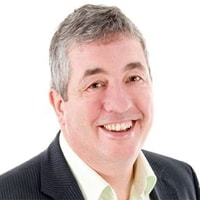 Andy Green, PR consultant and author of Creativity in Public Relations, and Jason MacKenzie, managing director of PR agency Liquid, are standing to be elected as the next CIPR president. Here we ask them a few questions about how they see PR today and in the future, plus their own plans for the CIPR.
Andy Green, PR consultant and author of Creativity in Public Relations, and Jason MacKenzie, managing director of PR agency Liquid, are standing to be elected as the next CIPR president. Here we ask them a few questions about how they see PR today and in the future, plus their own plans for the CIPR.
Do you think PR’s future looks bright right now?
AG: “No and Yes. We have to redefine or die – or at the very least we will face a lesser future with budgets cut, less power and diminishing respect. We are like a boat facing a tidal wave; we can either be swamped or ride the wave of change to a better future.”
JM: “We live in interesting times. The opportunities are vast, but so are the threats. Many of the more process-oriented activities will become automated, as algorithms replace them.
“This places greater emphasis on the need for us all to engage in continuing professional development, to sharpen our skills and stay ahead. ‘T’ shaped professionals are quickly becoming the new norm, with a broader skillset than ever before, married to deep knowledge and expertise in specific disciplines. If you’re committed to staying at the top of your game, it’s the most exciting time to be in our industry.”
 What do you believe are the most important current challenges for PR professionals?
What do you believe are the most important current challenges for PR professionals?
AG: “In my seven election pledges (which I have made into Trump cards to compare candidates – available from www.andygreencreativity.com) we need to create a ‘New School PR’ that enables us to do our jobs better, resist second-rate encroachment, and be good for wider society.
“We need to enable every practitioner to be a ‘Digital Competent’ to seize opportunities in SEO-led PR. Then we need to launch the biggest-ever PR for PR campaign. We have to step outside our ‘PR bubble’ with a better PR product that is fit for purpose for the 21st century.”
JM: “The most pressing challenge for us is to enhance the reputation of public relations. Many people still don’t understand or appreciate the value we create for organisations. That has to change.
“As the professional Institute for PR practitioners, our priority has to be to make membership more valuable and generate stronger engagement with all stakeholders, including the likes of the IoD, CIM and CIPD.”
Do you believe the client/PR agency relationship is changing?
AG: “It’s a paradoxical change. On the one hand, greater digital-led specialisation – the recent PRCA Digital PR Report showed an increase in SEO, blogger outreach and online advertising/PPC – whilst on the other hand there is potential for more strategic roles, if we seize the opportunities in shaping brand, brand story and corporate narrative.
“We can either move up the food chain, or face living off the crumbs of other disciplines, such as digital marketing, advertising or brand management.”
JM: “There’s been a dramatic shift away from a supplier/provider transactional approach to a partnership relationship where agencies are more often viewed as extensions of a client’s organisation. This is to be welcomed and encouraged.
“Professional practitioners perform best when given the opportunity to provide both strategic counsel and tactical execution and implementation.”
What do you see as the role of a professional body these days?
AG: “Professionalism is important, but we face greater priorities to tackle. The CIPR needs to lead the way and fly the flag for a ‘New School PR’ that is more effective, relevant and robust. We need to build upon and strengthen the legacy of Stephen Waddington and his successors in creating a pathway where you join the Institute with a clear progression to full Chartered status.
“In parallel with the professionalism agenda, the Institute needs to build and nurture a family of communities – like its Social Media Panel and Independent Practitioners network – that support PR professionals in their daily work; so you are never alone if you’re a member of the CIPR.”
JM: “Under successive presidents, the CIPR has been increasing its emphasis on the drive to professionalism. In practice, this means embedding continuing professional development and ethics at the heart of everything we do.”
“We’re on the right track, but we are still at a critical juncture. Now is not the time to zigzag or go off on a tangent. I am honoured to be supported by more than two-thirds of the CIPR executive board and council and by 10 past-presidents, all of whom want to see strong continuity and ongoing delivery of results.
“One specific outcome is that the letters MCIPR should resonate with employers and clients. Our members should be hired first, paid more and promoted faster.”
How do you plan to better engage your members?
AG: “I’m going to put a plaque in the reception of CIPR HQ saying: ‘We are a members-led organisation’. The Institute needs to evolve from a top-down, sometimes arrogant, and ‘Ruler’ Brand archetype to a bottom-up, collaborative, ‘Creator’ Brand archetype.
“Next year’s president Rob Brown is doing some excellent work with plans for better communications and engagement. I hope to extend that legacy by facilitating the emergence of member-run collaborative communities, so we can extend member engagement.
“The Institute boasts some brilliant people doing a fantastic job in its network of groups. We need to support them better.
“The fundamental however, is to inspire members with a new narrative of the future, that whatever challenges they face in their work, THEIR Institute is alongside them, supportive, facilitative, and championing their cause.”
JM: “There should be no two-tier membership of those ‘in the know’ and those on the fringes. One member wrote this to me: ‘You would certainly have my vote if you can make the CIPR meaningful to me. I carry the letters after my name, almost be default, but the Institute hasn't been so useful to me over the years. While I accept that you only get out what you put in, the CIPR engagement programme isn't so great.’
“My response: a strategic approach. A piecemeal, tactical response will not deliver results.
“Firstly, we must increase engagement through better resourcing our national, regional and sectoral groups, and by targeting specific communities, from students to our international members.
“Secondly, we must harness digital, social and video technology to deliver quality content directly to members from Accra to Auckland – and from Aberdeen to Abergavenny.
“Thirdly, we must grow the Institute by delivering the most successful membership campaign in our history. We must dedicate significant resources to making this happen, achieving a critical mass to increase our share of voice and create thriving communities, both in the UK and globally.
“Throughout this, we must engage in authentic two-way communications, changing policies and practices in response to demand.
“Members are the lifeblood of the CIPR: we ignore them at our peril.”
To vote for your preferred candidate, you need to be a member of the CIPR. Voting opens 28 September and closes 12 October, with results announced 16 October.
PR Masterclass: The Intersection of PR and GEO
Join PRmoment for a Masterclass featuring 10 of the industry’s foremost experts. You will walk away with a clear, actionable strategy for adapting your content to an AI-first search environment.
Taking place on Wednesday 25th February in London, both virtual and in person tickets are available.
Early bird ticket sale ends Friday 9 January.
PR MasterclassIf you enjoyed this article, sign up for free to our twice weekly editorial alert.
We have six email alerts in total - covering ESG, internal comms, PR jobs and events. Enter your email address below to find out more:









